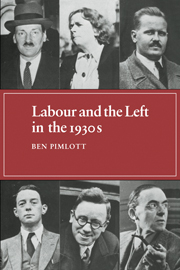Summary
Two great national anxieties, mass unemployment and the threat of war, dominated British politics in the 1930s and preoccupied British politicians, who failed to provide an answer for either of them. It was the ‘Red Decade’ – the decade of Auden, Spender and Cornford, of Love on the Dole and The Road to Wigan Pier. It was the decade of the Jarrow March, the International Brigade and the Left Book Club, of Fabian schools, mass rallies and demonstrations. Yet it was a decade in which the impact of the entire British Left on practical problems and immediate events was virtually nil. No major national policy or decision, from the formation of Ramsay MacDonald's first National Government in August 1931 to the declaration of war eight years later, was made or prevented by anything any politician on the Left said, wrote or did.
Perhaps this was inevitable. The National Governments responsible for taking decisions were unusually insulated from normal political pressures - the 1931 and 1935 Parliaments were controlled by the largest Conservative majorities of modern times. It might, therefore, be argued that the Left should be acquitted of any responsibility for the political failures which preceded the Second World War; that after the 1935 election, when Labour took a larger share of the popular vote than ever before but won a mere 154 seats, the Left had no chance of shifting the Government or influencing its behaviour before the circumstances of war changed the rules of the Parliamentary game; and that socialists had no option short of revolution but to take a spectator role, propagating their views and planning for the future, but blamelessly incapable of affecting the present.
- Type
- Chapter
- Information
- Labour and the Left in the 1930s , pp. 1 - 6Publisher: Cambridge University PressPrint publication year: 1977



